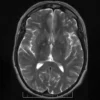Teachers face a number of stressful situations in the course of their work, including the death or illness of students or their family members, sexual assault, and acts of violence against teachers. However, while many studies have looked at the effects of stress on first responders (military personnel, firefighters, police officers, etc.) and mental health professionals, relatively few have looked at the effects of stress on educators.
Cognitive flexibility is an important tool for coping with the aftereffects of chronic stress, according to research led by Professor Einat Levy-Gigi of the Faculty of Education at Bar-Ilan University’s Department of Psychology and Neuroscience. The capacity to adjust one’s ideas, attitudes, and actions in response to novel circumstances is what we mean when we talk about cognitive flexibility.
Knowing when to act harshly and when to act softly and considerately, when to raise one’s voice and when to demonstrate restraint are all ways this can be expressed in a school setting, as is the ability to adapt teaching methods to the needs of students and to offer content that may be of interest to different groups at different times.
Levy-Gigi, along with coauthors Orly Harel and Alla Hemi, recently published a study in Scientific Reports that, for the first time, looked at how teachers’ levels of cognitive flexibility interact with their exposure to school-related stress to determine whether or not they develop post-traumatic stress disorder.
One hundred fifty education and teaching personnel (85% women, 15% men, average age 43, and average teaching experience 13 years) volunteered for the study and had their stress levels, cognitive flexibility, coping abilities, and PTSD symptoms evaluated.
The results of the study confirmed the high levels of stress experienced by educators and the link between workplace trauma and the onset of post-traumatic symptoms. However, there is a wide range in severity; some educators showed mild symptoms, while others displayed severe ones.
Cognitive flexibility moderated the association between school-related stress and PTSD symptoms in follow-up analyses, suggesting that it may account for some of the observed variation. So, consistent stress exposure correlates positively with an increase in PTSD symptoms among educators who score low on the flexibility scale.
The findings highlight the value of cognitive flexibility as a buffer against the deleterious effects of academic stress. Researchers claim that a breakthrough in enhancing teachers’ well-being and developing adaptive coping mechanisms that will allow for peak performance in the classroom could be achieved through a greater recognition of the critical role of cognitive flexibility as a protective factor for educators.


